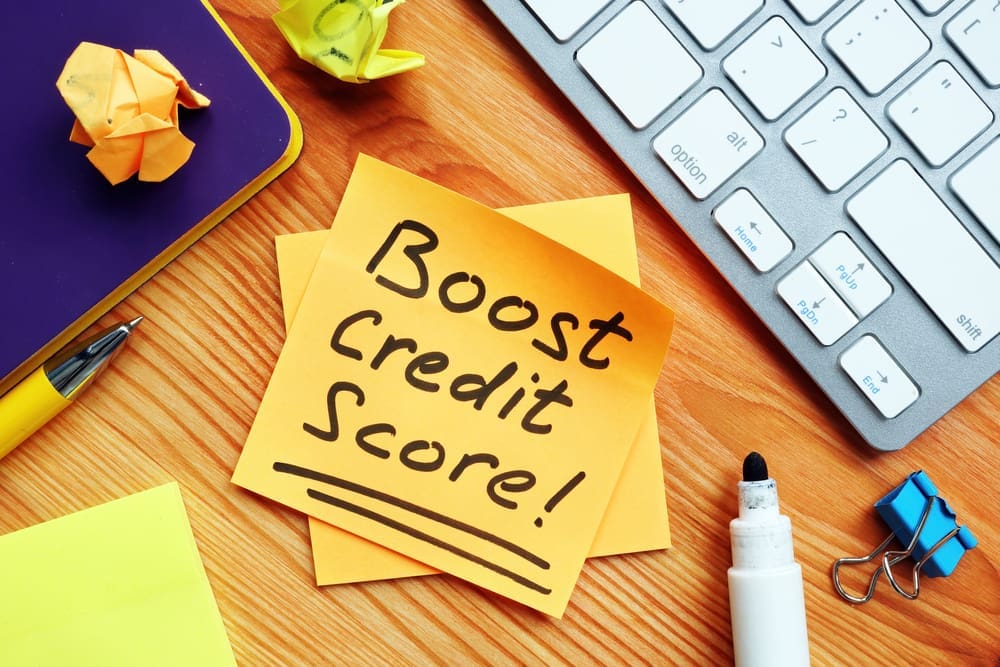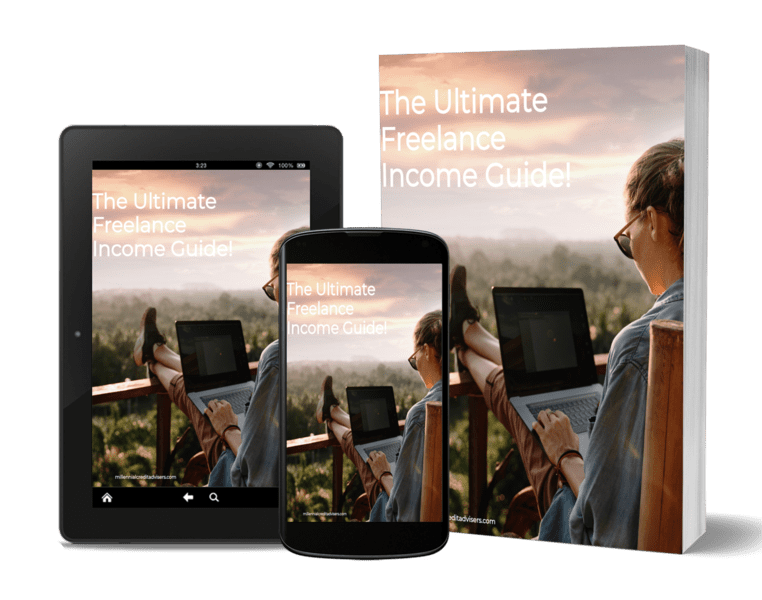181-Point Credit Score Increase: More Details Inside! Find Out More In Our Latest Article!
THIS ARTICLE MAY CONTAIN AFFILIATE LINKS, MEANING I GET A COMMISSION IF YOU DECIDE TO MAKE A PURCHASE THROUGH MY LINKS AT NO COST TO YOU. PLEASE READ MY AFFILIATE DISCLOSURE FOR MORE INFO.
Don’t Have Time To Read The Full Article. Here’s What You Are Missing.
- 181-Point Credit Score Increase: More Details Inside! Find Out More In Our Latest Article!
- How To Maximize Your Credit Scores: Benefit From Triple Checking Your Reports
- Want To Master The Art Of Improving Your Credit?
- The Importance of Regularly Reviewing Your Credit Reports
- Suppose you haven’t viewed your credit reports in a while.
- Which credit scores should you use?
- Stay organized with your credit report review checklist.
- Mastering Good Credit Habits: Say Goodbye to Bad Credit.
- Bad credit habits can affect many other areas of your financial & credit life as well.
- Improve Your Credit Score with These 5 Key Areas.
- Once I understood which lousy credit habits were holding me back.
- Improving my credit score: One + point was all I needed to move it in the right direction.
- Conclusion.
How To Maximize Your Credit Scores: Benefit From Triple Checking Your Reports
Before my credit started improving and my credit score increased, I had a love-hate relationship with credit and credit reports, and my credit scores showed it.
I used to believe all credit reports and scores were identical.” Suppose you’re like me and don’t understand your credit score(s) or how they work with your credit report(s).
You could lose a lot of money if you don’t triple-check your credit reports from all three credit reporting agencies or improve your credit scores for better deals.
I didn’t realize how significant those three digits could be.
My scores were so low and always fluctuated, going from bad to good to bad to bad.
Often not realizing why. Let’s say the why was me and not the credit reporting companies.
If you’re reading this, you probably care more about your credit scores than I did.
With some credit scoring systems, your score can range from Poor-to-Fair-to-Good-to-Very Good-to-Excellent, with corresponding numbers from (300-900) assigned to each range.
My goal was to achieve better-than-average credit and an excellent credit score, progressing from poor to good, to very good, and finally to excellent or better.
Before discussing how my credit score increased by 181 points, I want to assure you that it is possible.

Once my credit score started improving by one point… Yes, one point. That’s when I knew keeping at it would be the best thing to do!
Once my credit improved, many other great benefits were available. I was able to start:
- Saving money.
- I received better interest rates.
- Rewards, offers, and perks also made it worthwhile.
Here’s the secret: You could beat this record over time by changing a few habits, such as regularly reviewing your reports, improving your credit, and setting winning goals with tangible results.
Bonus Tip: One important thing to remember is to avoid adverse reporting on your credit file. If your credit does not meet your standards, it can be beneficial to take positive steps to improve it.
Once you begin making positive changes and improvements, it may seem like those changes happen overnight.
Give it a try! Start improving your finances and your credit. It’s easier than you think, and it does make a difference.
Want To Master The Art Of Improving Your Credit?
Start with some things you can do with little effort.
- If you haven’t taken the first step, order your credit reports with credit scores.
- Look at your current debt and credit situation.
- Use a simple budget to track and pay down debt.
- Start evaluating, auditing, and reviewing your credit reports.
Remember, regardless of your credit status, it can be improved over time with effort.
Here are three more keys to remember.
- Use only bonafide methods tailored to your situation to improve your credit; they’re most effective.
- The positive improvements to your credit history are valuable and can have long-lasting results.
- The best place to start is by ordering and reviewing your reports and scores.
Use these three essential tips to stay motivated. Here’s why you should review your credit reports.
The Importance of Regularly Reviewing Your Credit Reports
- It’s the best place to view your credit scores and start making improvements.
- Reviewing your credit reports may be easier than asking someone you don’t know for a copy of your credit report(s).
- Plus, if you are applying for a loan or credit, they get to see your credit report(s) and scores; if your credit reports and scores are a little messy, you may not get to see them.
- To see the difference in all your credit reports and scores.
- Your credit reports can help with managing your debt and personal finances.
- Evaluating, auditing, and reviewing your credit report(s) can help you identify how you currently use credit and how to improve your credit circumstance or situation.
- This will help you understand what’s on your credit reports or who is looking at or inquiring about your credit and credit history.
- It helps you understand your credit usage and history and track balances.
- Help you identify and dispute erroneous, inaccurate, or incorrect personal information.
- Review and compare credit reporting data that may be unknown or you may need to be made aware of.
- In the long term, it may help you improve your credit score and surpass our short-lived 181-point record.
Suppose you haven’t viewed your credit reports in a while.
You can get your free credit reports each year, and now Free weekly online credit reports are available from Equifax, Experian, and TransUnion at annualcreditreport.com.
You should order your credit reports for many reasons — 11+ Proven Steps Millennials Can Master To Build Excellent Credit.
Some of the biggest reasons for looking at your credit reports!
- Multiple companies can access your credit information.
- You could be a victim of ID theft or a recent data breach, and your personal identifying information could be found on the dark web.
- It is essential to compare the credit and scoring information on your credit reports from all bureaus.
- When ordering all your credit reports, be sure to order them with credit scores.
After ordering your credit reports, keep track of your progress and note any positive or negative information or changes you can easily make.
Which credit scores should you use?
There are many consumer credit reporting companies and specialty companies. A few of the most popular consumer reports you may have used come from Equifax, Experian, FICO, and TransUnion.
We use FICO scores. Here’s why!
FICO® Score is used by 90% of top U.S. lenders in 90% of lending decisions.

Because so many lenders use FICO.
- Knowing your score could make a big difference in helping you make smarter credit decisions and save money now and in the long term.
- Another key to remember when ordering your credit reports is to look at your credit reports and credit scores, compare your credit scores, and notice the differences between each reporting company.
- Also, check the reported information for all sorts of right, wrong activity, and unknown information.
Stay organized with your credit report review checklist.
In addition to knowing and using the best scores and checking for unknown activity.
You can use a simple credit report review checklist to help keep track of important details while you review your credit report(s).
Use your credit report review and a personal financial statement to update, maintain a record of your progress, and track negative and positive information.
Be sure to note any changes since you last reviewed your report(s).
Mastering Good Credit Habits: Say Goodbye to Bad Credit.
There are many examples of bad credit habits!
Here’s one example: How one lousy credit habit affected a car-buying experience.
When my credit score was poor, on the border of poor and bad credit.
I was looking to purchase a car, but my lousy credit habits from years earlier started showing up on my credit reports and because of my bad credit habits.
I could only buy at “You Get What You Pay For” places, dealers, and lots with subprime rates.
At one dealership, I used my best negotiating skills only to get their best and worst deal.
- Best deal ever for the dealership.
- The worst deal for me, not to exaggerate, the car started falling apart right off the car lot, e.g., knobs, buttons, windows, things just stopped working.
- Even the A.C. was suspect… but it had an engine.
- I had to pay extra for the wheels; they added tires to the car as a bonus.
- My “Buy Here, Pay Here” interest rate was well over 29%, which meant high payments.
- It wasn’t the best deal (But with limited options due to my past lousy credit decisions), it was costly, and I needed the transportation.
Bad credit habits can affect many other areas of your financial & credit life as well.
Bad credit habits can linger forever, and you probably know someone who can share a few stories of their bad credit habits.
- In this example, “Making late payments” was a bad credit habit that needed changing.
- An adverse payment history is one of the most significant factors that can weigh heavily on your credit reports.
- Remember, once it’s past due and reported as late (30, 60, or 90 days and longer) on your credit reports. Too late!
- What can be affected?
- Higher Rates, Added Penalties, Fees, and more.
- Adverse Credit Reporting.
- Lower Credit Scores.
- Account(s) sent to collections affect your credit reports and scores.
- Adverse transactions affect your credit for lengthy periods.
- Bad credit habits can play a big part in your credit decisions… like buying a car.
Improve Your Credit Score with These 5 Key Areas.
Don’t wait any longer to start your journey towards better credit. Your credit reports demand your attention. Focusing on these critical aspects can help you manage your credit and achieve a better financial future.
- Remember, bad credit habits and decisions affect more than just credit.
- Use a long-term financial plan, spending plan, credit report review checklist, and updated credit goals to improve your credit.
- Improving your credit can help you save hundreds to thousands of dollars in interest over time.
- Improve your Debt To Income.
- Use your credit to increase your savings and emergency reserves or funds. It’s money that’s available when needed most.
Once I understood which lousy credit habits were holding me back.
I started focusing on 5 Highly Successful Credit Habits that would help now and in the long term.

- I regularly monitor my credit reports to make improvements and check for lousy credit habits.
- I started reducing my debt and zeroing out my credit card balances.
- I started using better budgeting and tracking my income for improvements.
- I automated my bill paying to save time and money.
- I started saving more for emergencies and to fund my future.
Now, I only focus on good credit habits that continue to help me improve my credit and more. Best Credit Score Makeover Strategies: Turn Around Dropping Scores Now!
Improving your credit doesn’t have to be tricky! The place to start is to order your credit reports.
Improving my credit score: One + point was all I needed to move it in the right direction.
Improving a credit score by 181 points may be no big deal to you. But it was a big deal.
Over time, I was able to save money! Here’s how!
- Paying lower interest rates (Saving money).
- Paying lower fees or many fees were eliminated (Saving money).
- Pay lower down payments or no down payments (Saving money).
- Pay no secured deposits (Saving money).
- I improved my credit, which helped tremendously (Saving money).
- I received new offers for credit line increases (Saving money).
If you could start over and choose one way to save money from the list, which would you choose?
Because I want to ensure you’re getting the most out of this article, I am curious to know:
“Would you turn down a credit line increase?” If so, please share your answer below. We will then send you a few free money tips.
Once my credit improved, I received some of the best rewards, perks, and offers. The Ultimate Guide to Using Your Credit Card’s Exclusive Benefits – Save Money with Companion Fares, Lounge Benefits, and More.
Conclusion.
Changing my credit habits wasn’t difficult once I had an idea of the end goal: Winning the Debt, Savings, and Credit Challenge.
Which of the following strategies are you using today? Some of you may have used them before, but here’s a helpful reminder of a few easy steps you could take now.
Pay off your debt.
Order your credit reports.
Monitor your bad credit habits.
Evaluate, audit, and review your credit reports.
Save a little to cover unknown emergencies, and fund your future.
Make it your long-term goal to improve your finances and credit and increase your score. Conquering Debt: How I Crushed $42,000 in 6 Months (and You Can Too!).
Ready to get started? Take The 181 Point Credit Score Challenge: Transform Your Finances.
Maybe you can beat 181 points, and that’s something to be proud of.
Disclaimer: Millennial Credit Advisers is not a licensed credit service provider or financial advisor. We don’t offer credit repair, debt management, or legal services. Educate yourself on saving, reducing debt, and managing credit for economic improvement. Understand credit reports, scores, and financial products. Consult a financial advisor for personalized advice. Track your progress for a better credit journey.
Written content – “Please view our full AI Use Disclosure.”
We improve our products and advertising by using Microsoft Clarity to see how you use our website. By using our site, you agree that we and Microsoft can collect and use this data. Our privacy policy has more details.
















